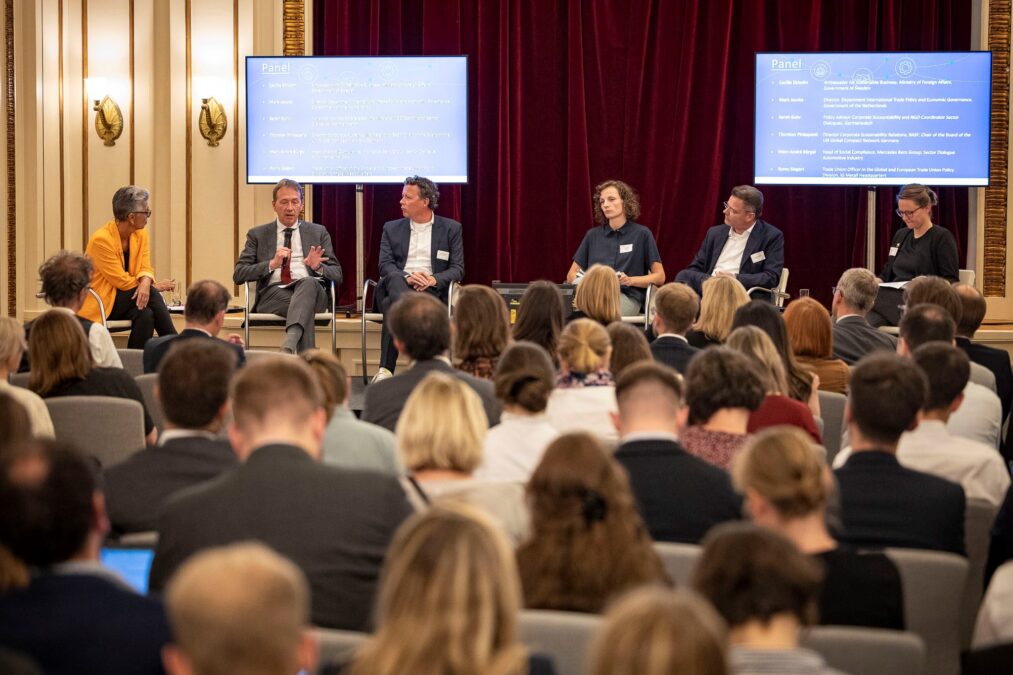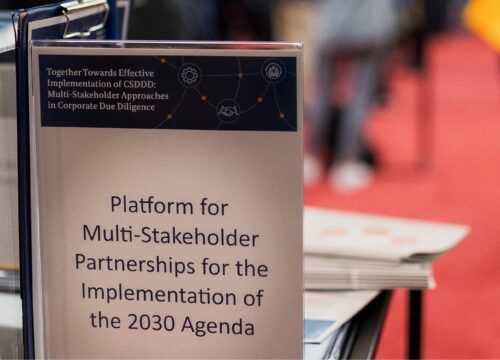The meeting on September 23 in Brussels focused on the potential of multi-stakeholder partnerships (MSPs) in the implementation of the new EU Corporate Sustainability Due Diligence Directive (CSDDD) on the implementation of human rights and environmental due diligence obligations in companies. The directive requires companies to identify, mitigate and prevent risks along global supply chains in future. MSPs are an effective method to support the impact-oriented implementation of CSDDD as they bring together stakeholders from the private sector, civil society, government, and academia to contribute their specific expertise to the successful implementation of the directive.
The great interest in MSP and CSDDD was demonstrated by the vivid participation of more than 130 representatives from European institutions, companies, associations, civil society, initiatives and other EU member states who took part in the event. Lilian Tschan, Permanent State Secretary in the German Federal Ministry of Labour and Social Affairs, and Dr. Bärbel Kofler, Parliamentary State Secretary to the German Federal Ministry for Economic Cooperation and Development, opened the event. Both emphasized the importance of MSPs as platforms for learning and dialogue in order to create innovation and joint solutions. In the following, Nils Behrndt, Deputy Director General of the European Commission’s Directorate General for Justice and Consumers, gave a keynote on the upcoming implementation of CSDDD.
A panel discussion with representatives from BASF, Germanwatch, Mercedes-Benz Group, IG Metall and the Dutch and Swedish governments discussed their experiences with multi-stakeholder initiatives, such as the UN Global Compact Network Germany, sector dialogues on automotive industry and energy, and the challenges of the new directive. An interactive exchange format afterwards enabled a targeted dialog with individual multi-stakeholder initiatives from Germany, the Netherlands and Sweden. Partnerships2030 also presented its range of knowledge products, training courses and consulting services for MSPs.

Partnerships2030, in cooperation with the Sector Dialogues Office for the Implementation of the National Action Plan on Business and Human Rights (NAP), was responsible for organizing and implementing the event. Participants expressed their gratitude for the initiative and emphasized the importance of exchange formats at the beginning of the directive to get to know different actors and build a future-oriented cooperation.
Please find the agenda below.



